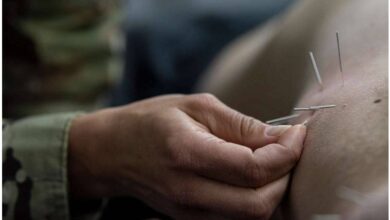Protecting Your Hair During Long Shifts: Tips for Medical Workers

Working long shifts in the healthcare field can be physically and mentally exhausting, but it can also take a toll on your hair. Between the long hours, exposure to chemicals, and the stress of the job, medical workers often face challenges in keeping their hair healthy and protected. Luckily, there are simple solutions to help maintain the health of your hair during these long, demanding shifts.
Here are some essential tips for protecting your hair during long shifts:
Wear a Scrub Cap for Hair Protection
One of the easiest ways to protect your hair while working in a healthcare setting is by wearing a scrub cap. Scrub caps help shield your hair from potential contaminants and keep it secure throughout long shifts. This is particularly important in sterile environments, where hair can easily come into contact with harmful substances. Scrub caps also prevent your hair from becoming tangled or matted due to sweat or constant movement.
By choosing a comfortable, breathable scrub cap, you can reduce friction and the risk of breakage, helping to maintain your hair’s health. You can also opt for caps with adjustable bands for a secure, snug fit that won’t cause headaches or discomfort.
Keep Your Hair Clean and Hydrated
Maintaining a clean and hydrated scalp is essential, especially after long shifts. Sweat and build-up from hair products can lead to irritation or clogged pores. Make sure to wash your hair regularly, using a gentle shampoo and conditioner designed for your hair type. If your shifts are particularly long, dry shampoo can be a lifesaver in absorbing excess oil and keeping your hair looking fresh between washes.
Additionally, incorporate a deep conditioning treatment into your routine once a week to keep your hair nourished and hydrated. This will help prevent it from drying out due to exposure to air conditioning or heat from the operating rooms.
Avoid Tight Hairstyles
While it may be tempting to pull your hair back tightly into a ponytail or bun during your shift, tight hairstyles can lead to hair breakage and stress on your scalp. Instead, opt for looser hairstyles or braided styles that won’t pull too tightly on your hair follicles. Loose buns, braids, or ponytails can help keep your hair out of your face while reducing the risk of tension-related hair damage.
Protect Your Hair from Chemicals
Working in a medical setting often involves exposure to various chemicals, such as disinfectants or cleaning agents, which can be harsh on your hair. Whenever possible, wear a scrub cap or headscarf to protect your hair from exposure to these substances. If you handle chemicals directly, wearing gloves and a protective cap can minimize the damage to your hair caused by accidental contact.
Invest in High-Quality Hair Care Products
The right products can make a significant difference in the health and appearance of your hair. Look for shampoos, conditioners, and styling products that are free of harsh chemicals like sulfates and parabens. These ingredients can strip your hair of its natural oils, leaving it dry and brittle. Opt for nourishing, sulfate-free products to keep your hair moisturized and protected.
Stay Hydrated and Eat Well
One of the most effective ways to maintain healthy hair is by taking care of your body. Staying hydrated and eating a balanced diet rich in vitamins and minerals, such as biotin, zinc, and vitamins A and E, can support healthy hair growth. Drink plenty of water throughout your shift to keep your scalp hydrated, and incorporate nutrient-dense foods like leafy greens, nuts, and lean proteins into your meals to nourish your hair from the inside out.
Take Breaks and Care for Yourself
Long shifts can leave you feeling physically drained, which may also affect your hair’s health. Taking regular breaks to rest and recharge can help reduce stress levels and prevent hair from becoming limp or dry. Stress is a common cause of hair loss, so it’s crucial to find ways to manage it, whether through breathing exercises, short walks, or relaxation techniques.
Nighttime Care Routine
After a long shift, your hair may feel tired and worn out. Before bed, give your hair a little extra care by gently brushing it to remove tangles, and consider applying a leave-in conditioner or hair serum to restore moisture. Sleep on a silk pillowcase to prevent friction that can cause breakage or frizz, and if you have long hair, consider loosely braiding it to avoid tangling overnight.
Conclusion
Working long shifts in the medical field is a demanding job, but with a few simple hair care practices, you can keep your hair looking and feeling healthy. Scrub caps, along with a well-rounded care routine that includes regular washing, hydration, and the right hair products, will help ensure your hair is protected throughout the day. By following these tips, you can maintain both your well-being and your hair health, even during the busiest of shifts.
Keep an eye for more news & updates on UsaTechMagazine!





